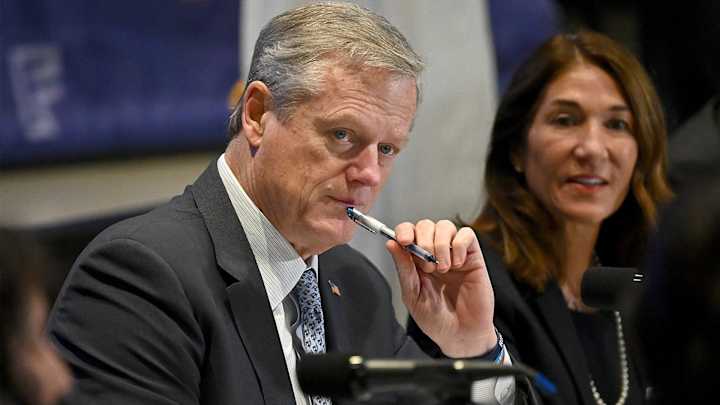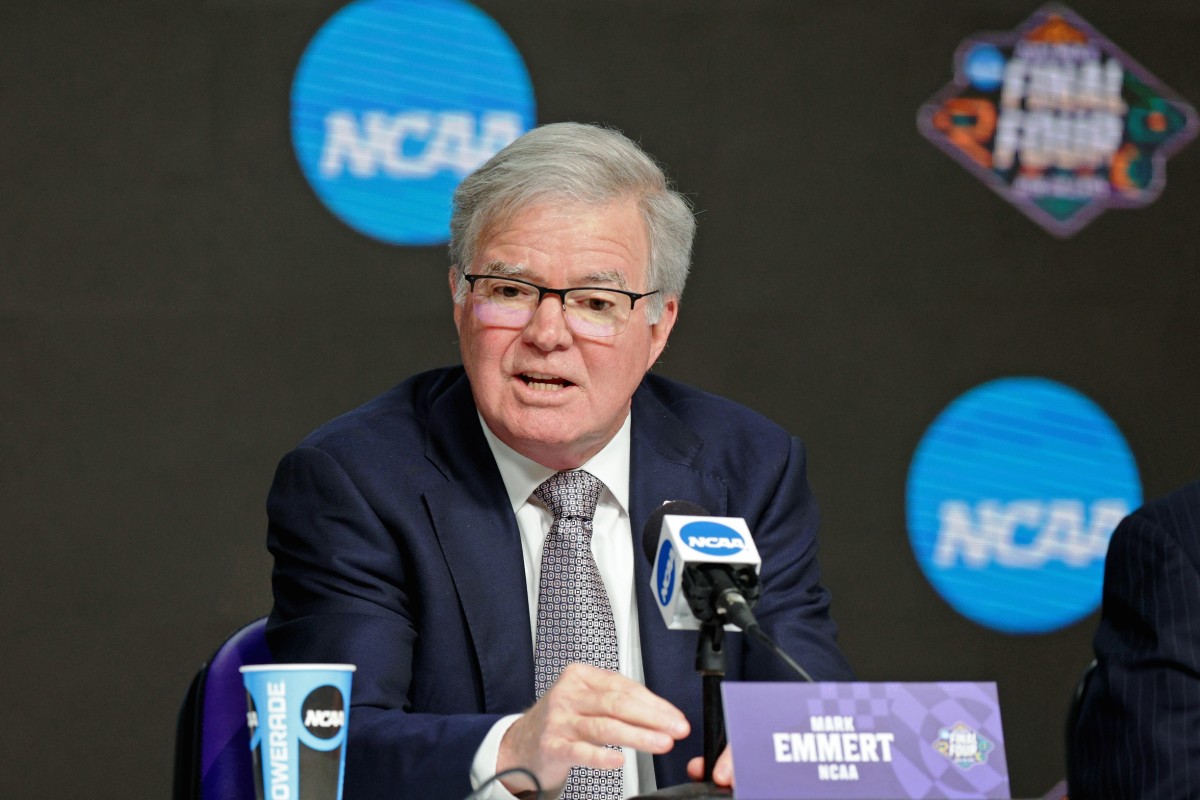NCAA Targeting Political Firepower With President Pick


For the first time in 72 years of executive leadership, the NCAA has gone outside its own campuses or national office for a president. Given the state of affairs, this seems like a fine time to shatter the status quo and try something different.
Starting March 1, Massachusetts Gov. Charlie Baker, a Republican, will be the ninth president of the NCAA. Hiring a sitting governor is a significant break from the established pattern of college administrators in that role, be they athletic directors or presidents or NCAA bureaucrats. It continues the industry trend of moving away from the kind of leaders who led it into the current quagmire.
Like predecessor Mark Emmert, Baker might turn out to be little more than the next well-paid piñata in the presidential role. Hopefully he presides over fewer disasters than Emmert, many of which were self-inflicted and diminished the credibility of the NCAA’s national office.
For now, let’s grant Baker the benefit of the doubt and assume he will have some legitimate influence and stature. If that’s the case, four of the six most powerful people in college athletics will have arrived within the past three years—and from completely outside the space. Big Ten commissioner Kevin Warren came from the NFL, Pac-12 commissioner George Kliavkoff was in the Las Vegas entertainment industry and Big 12 commissioner Brett Yormark was a sports and entertainment exec with the New Jersey Nets, Roc Nation and NASCAR.
Now, the NCAA is going straight politician.
The last career campus administrators in the group are Southeastern Conference commissioner Greg Sankey and Atlantic Coast Conference commish Jim Phillips. The pivot away from that profile, which had proliferated for decades, indicates how badly the previous generation screwed things up by being stubborn, tone deaf, greedy and myopic.
It also indicates the shifting needs of the constituents. The conferences want deal-makers who can market them to media companies for the highest possible dollar. The NCAA wants someone who can convince politicians to produce legislation that keeps the association viable and out of its current barrage of lawsuits.
The NCAA has been begging for congressional intervention on a number of levels, most notably finding a path on player compensation that reins in the current unrestricted free agency. The colleges don’t want to make their athletes employees; they want uniform national legislation that would provide some control over their earning power and movement between schools. But outside of a few senators and representatives who have been involved in crafting proposed legislation, most of Washington has shown little interest in getting involved.
Is the best way to get a political bailout hiring a politician as the new NCAA president? Could be. Perhaps the best person to ask is Tom McMillen, a former U.S. congressmen and college basketball player who now works with FBS athletic administrators at LEAD1. He knows both sides of the NCAA/D.C. equation.
“Very good choice,” McMillen tells Sports Illustrated. “Inspired in many ways… he brings a lot to the table. Governor is no small task. The most important thing is he brings this political acumen to the table.
“His constituency is now the 1,100 schools. He’s got to build trust and bonds with those schools. He’s got an interesting blend of qualities.”

Amy Perko of the Knight Commission, a college athletics advisory group that also serves in a watchdog role, says wrangling control of high-level football is the pressing issue. That tail has wagged the dog for many years, and it will only grow stronger as the College Football Playoff expands to 12 teams and the sport generates even more revenue. Football’s ravenous appetite for more of everything—while also producing almost all the money that sustains other sports—is largely unchecked.
“It should be the first priority,” Perko says, “to figure out the role of the NCAA and the responsibility of the NCAA with regards to the governance of FBS football. FBS governance is a mess. With the CFP expanding to generate $2 billion annually outside of the NCAA, the issue of governance of that sport can no longer be punted.”
There are many more areas to address as Baker assumes what has been a thankless task. Trying to get more than 1,000 schools of wildly diverse investment in athletics to see any issue through the same lens is difficult. Trying to enact substantive change has long been akin to turning a battleship in a bathtub. But as Baker himself noted in a vague introductory press Zoom call Thursday, this is “a bit of a pivotal period for the NCAA.”
Hence a pivotal hire, away from former university presidents and athletic directors and bureaucrats. This search for the next president was informed by feedback from the NCAA’s transformation committee, which has been tasked in the past year with remaking as much as it sees fit about the way college athletics is guided and administered.
One thing decidedly non-transformational about this part of the transformation committee’s work is the very complexion of its new leader. Baker is another white man in charge. Other than a couple of notable inclusions for brief periods in the 1980s (SWAC commissioner James Frank) and ‘90s (UC-San Diego athletic director Judith Sweet), the face of NCAA leadership has been monochromatic and masculine.
Maybe this is as much mold breaking as the NCAA can handle at one time, bringing in a governor to a position he seems to know little about at the granular level. Baker, who was a college athlete (basketball at Harvard) and is the spouse and parent of former college athletes, has at least been in the arena—literally and figuratively. But he acknowledged that his first job is listening as he attempts to get a handle on how to govern something other than a state.
He’s going to get an earful. From everyone. But college sports outsiders are the new insiders, for better or worse, and Charlie Baker has the advantage of following someone who set the bar for NCAA leadership about as low as possible.
SI Senior Writer Ross Dellenger provided information for this story.
